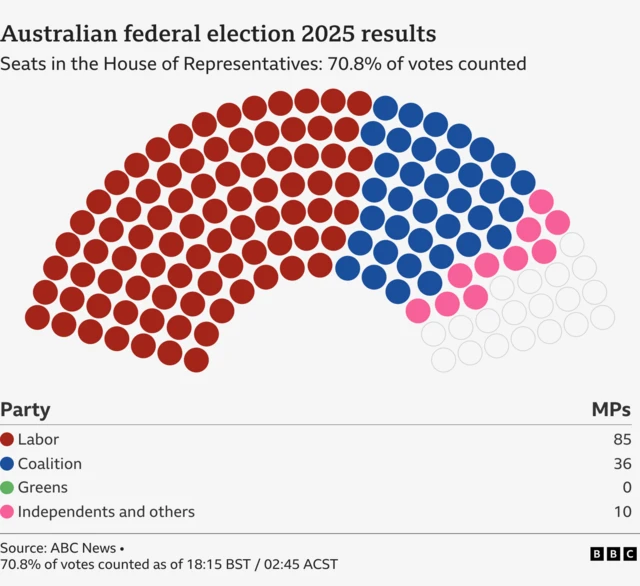
socrates469bc
-
Posts
11287 -
Joined
-
Last visited
-
Days Won
67
Content Type
Profiles
Forums
Events
News & Reviews
Posts posted by socrates469bc
-
-
22 hours ago, pigpigoink said:
will we be next?
or already ing(ongoing)?
limpeh go visit her and her jiemeis twice a week
kumgong pappy serf think leh????????
wahahahahahahahahahahahaha

-
 2
2
-
-
On 5/5/2025 at 9:25 AM, XianGe said:
Thi result feels like what happened few rounds ago. Oppo went for the offensive then every lightning gang voter claims they are dangerous and nickpick on quality....
KJ's summary stays true even till this day.
conclusion:
kumgong pappy serfs r kumgong until bo cure de
stupidity bo cure
wahahahahahahahahahahahahahahaha
-
 1
1
-
 1
1
-
-
On 5/5/2025 at 9:10 AM, Satki said:
I think they need to hire @socrates469bc to vet their speech and text so as not to be so lor sor and useless. Also, hire @The_King to vet their online history and help to scrap the dirt out.
I think PS need to learn from Trump on how to troll the tards in the opposite team. Notice how their mainstream and Dem reps and senators are tripping over themselves to do crazy stuff. Trump is a master of internet trolling. I see sane people are flailing themselves each time he trolls them thinking it is for real.
Latest are I will seek 3rd term one day and no another. I will not follow Constitution one day and no another day. If PS learn just 50% of that tactic, I think many of these strait jacket incumbents will crumble to be immediate patient of IMH.
Cheers
even if limpeh give oppo free consultancy, rebellious kumgong pappy serf think can help meh??????
the average kumgong pappy serf is too kumgong to think critically, so u think still have hope ah??????
stupid no cure de
wahahahahahahahahahahahahahahahahahahaha
-
 1
1
-
-
19 hours ago, The_King said:
sad day in sg
diam diam lah, kumgong pappy serf!!!!!!!!!!!!!
may 3rd will go down in history as the most glorious day in pappyland history, ok???????????
wahahahahahahahahahahahahahahahaha

-
 4
4
-
-
........ becos kumgong aussie serfs also choose 'wisely'
kumgong aussie serfs think pgd sex more important than economic issues
wahahahahahahahahahahahaha

-
 2
2
-
-
2 hours ago, chamfer said:

-
 1
1
-
-
6 hours ago, Satki said:
wait
if 99% then very good chance you are in the group since the 1% is likely the ones that does not even know what is this little nyonya?
limpeh didnt even watch the show, but limpeh was observant enough during the advertisement and short glances of the show in kopitiams.
when did peranakan family write in putonghua de??????
wahahahahahahahahahahahahahahahahaha
-
4 hours ago, Satki said:
Its Sunday May 4th.
It is deathly quiet in Punggol. People are walking around in a daze.
You could sense that people are giving side wards glances to see if the guy next to him or her is a baotoh kia.
Alas, people like @socrates469bc will have the next 5 years laughing at us.
I have to keep the hammer and umbrella in the store room again.
Surely Tuesday at work will be an awkward day. Should you rant or smile when people come up and boast how their party scored a "landslide" or how their party have the strongest mandate ever!
My suggestion is to give them the same treatment. Smile (cunningly) because your day will come when they are marched out the door when a new FT is hired.
Until then......
rebellious kumgong pappy serf jiu shi rebellious kumgong pappy serf
if 99% of pappy serfs r kumgong enough to watch little nyonya without thinking, u think pappyland got hope meh?????????
little nyonya alrdy is subtle hint liao
wahahahahahahahahahahahahaha

-
 4
4
-
-
11 hours ago, noobmaster said:
bky, becos it means kumgong pappy serfs r not kumgong enough to give pappy lords/ladyships sb91%
next election will be sb81% first
Majulah sb91%!!!!!!!!!!!!!!!!!!!
wahahahahahahahahahahahahahahahahahaha
-
 2
2
-
-
.............. alrdy know oppo sure hantam by pappy lords/ladyships until their laobu dont recognize them
if any pappy serf observant enough will know what limpeh means
2 reasons and limpeh will give all u kumgong pappy serfs 2 hints as to why limpeh say so
1: who is one of the sponsor
2: peranakan poems in putonghua meh?????????
wahahahahahahahahahahahahahaha
-
 1
1
-
-
8 minutes ago, XianGe said:
GMS attack ppl already prepared to lose $$$... Those follow him also kumgong...
Surprised is PSP failure to gain anything...
kumgong or not is relative
wahahahahahahahahahahahahahahahahaha

-
2 minutes ago, noobmaster said:
Lim Tean and NSP how?
allow limpeh to rehash what limpeh said 2 weeks or so ago
On 4/17/2025 at 11:01 AM, socrates469bc said:wahahahahahahahahahahahahahaha
-
btw, limpeh was telling my laobu b4 any results out that oppo will be lucky if their deposits not forfeited

-
 1
1
-
-
ok now all u rebellious kumgong pappy serfs, limpeh will only say once.................

wahahahahahahahahahahahahahahahahahahaha
-
 2
2
-
-
10 minutes ago, The_King said:
today will sg d day
diam diam lah, rebellious kumgong pappy serf!!!!!!!!!
it will be the most glorious day in pappyland, ok???????
wahahahahahahahahahahahahaha

-
 2
2
-
-
On 5/2/2025 at 3:55 PM, zheng said:
Political Scandals & Misconduct
-
Corruption Charges Against S. Iswaran
-
Tan Chuan-Jin and Cheng Li Hui Affair
-
Ridout Road Rental Controversy
-
Tin Pei Ling as Grab Director of Government Relations
-
Melissa Tan’s Recycling Facility Fires (Repeated)
-
Lee Bee Wah Awarding Town Council Projects to Herself
-
Jo Teo’s Sex Comment: “Only need a small space”
-
Vivian Balakrishnan & Tan Chuan-Jin’s Hot Mic Comments
-
Indranee Slamming Files in Parliament
-
Janil Puthucheary NS Controversy
-
No NS for MPs vs NSF Moonlighting Ban
-
Opposition cannot use CC even if they got voted in.
Transparency, Accountability & Ethics
-
NRIC Saga + ACRA U-turn (Indranee Rajah & Josephine Teo)
-
Temasek's FTX Loss – US$275 Million
-
TraceTogether Data Misuse (Parliament Lie + Privacy Breach)
-
SPH Readership Fraud by SAF General (Umbrage Incident)
-
Reserved Presidency Controversy
-
LKY’s Last Wishes on Oxley Road
-
COP Bias Allegation (Edwin Tong)
-
No COP for MRT Breakdown – Chee Hong Tat’s Dismissal
Economic Issues & Policy Failures
-
GST Hike (x2) + Soaring Inflation
-
Million Dollar BTO Flats
-
ERP 2.0 System – $500 Million
-
$40 Million SimplyGo Mess
-
$300 Million Founders' Memorial
-
Big Layoffs + Retrenchments (NTUC's Ineffectiveness)
-
NTUC Income–Allianz Deal Controversy
-
Toilet Cleaning Grant for Coffeeshops Amid Landlord Greed
-
Singaporeans Told to Work Longer
-
Proposal to Expire Degrees in 5 Years (SkillsFuture Conflict of Interest)
-
Youth Olympics 2010 . VB S$104 budgeted actual ballooned to S$387 million
Transport & Infrastructure
-
Frequent MRT Breakdowns
-
Foreign Worker Lorry Fatalities – No Buses = Companies Fold
-
Minimum Penalties for Fatal Accidents Reduced Despite 5-Year High
-
SimplyGo Payment System Failures
-
ERP 2.0 Unpopularity and Costs (Already Included in #22)
Social Policy & Public Reactions
-
Treatment of Foreign Workers During COVID
-
Mobile Guardian Hack – Loss of Student Notes
-
Tray Return System = Fewer Cleaners, Dirtier Centers
-
Amy Khor on Hawker Rentals Not Affecting Prices + Egg Hoarding Denial
-
School Bullying Reactions – "Empathize with Bullies"
-
Punishing Bystanders Who Record Bullying (Maliki Osman)
-
NS as “A Privilege” + Ministerial Contradictions
Electoral Integrity & Power Retention & Bullying:
-
Gerrymandering & Candidate Parachuting
-
PAP new candidate Shawn Huang: Screenshots of his telegram messages on how to harass PSP walkabouts were leaked. He was teaching his colleagues and volunteers how to harass PSP
On 5/2/2025 at 5:02 PM, The_King said:Heng me is 30%
diam diam lah, rebellious kumgong pappy serfs!!!!!!!!!
pappy lords/ladyships can do no wrong de!!!!!!!!!!
wahahahahahahahahahahahahahahaha
-
 1
1
-
 1
1
-
-
51 minutes ago, zheng said:
limpeh waiting for alp return with supermajority of 101 out of 151
aussie kgks more concerned with same sex marriage than economic issues
wahahahahahahahahahahahahahaha
-
................limpeh think will be sb91
wahahahahahahahahahahahahahaha
-
 2
2
-
-
when love turns to murder
https://thesun.my/malaysia-news/crimes-that-shook-the-nation-body-parts-in-fridge-murder-FM1952447

-
 2
2
-
-
7 hours ago, classyNfabulous said:
harriann’s pandan chiffon is ho jiak too
at first, limpeh read @HarrisY1
-
 4
4
-
-
16 hours ago, The_King said:
maybe he will renoma back

-
On 5/1/2025 at 4:20 PM, ManOfTheHour said:
Wanna taste Anatasia’s pandan flavored pgd mmm
On 5/1/2025 at 4:42 PM, noobmaster said:People think Nyonyas look like Tasha when the average one is closer to Anatasia

kumgong kias jiu shi kumgong kias
she is indon chinese, not peranakan
wahahahahahahahahahahahahahaha
-
 2
2
-
 3
3
-
-
On 5/1/2025 at 11:54 AM, zheng said:
https://edition.cnn.com/business/singapore-pandan-cake-bengawan-solo-hnk-spc-intl/index.html
Anastasia Liew at one of Bengawan Solo’s stores in Singapore Changi Airport.Justin Robertson/CNN
CNN —A fluorescent green cake has become a daily staple in Singapore. Locals grab a slice of the ring-shaped pandan chiffon cake on their way to work or pick up an entire one for friends’ birthday celebrations.
The light, fluffy cake gets its color and subtle grassy vanilla taste from the tropical pandan plant, which is believed to have originated in Indonesia’s Moluccas Islands, and has been used in cooking for hundreds of years.
In Singapore, pandan chiffon cakes started appearing in the 1970s, says local food historian Khir Johari. Today, the dessert is ubiquitous in the city, appearing everywhere from mom-and-pop bakeries to upscale restaurants.
One particular family-owned bakery helped take the cakes citywide, Johari adds.
“I made it popular in Singapore,” says Anastasia Liew, who in 1979 founded the first Bengawan Solo cake shop, a small neighborhood store. “Sorry, we’re not very modest,” chimes in her son Henry, a company director, with a chuckle.
On 5/1/2025 at 12:10 PM, The_King said:Normal le nothing special
bengawan solo kueh lapis and chiffon cake jin ho jiak pre 1995
for some unknown reason, after 1995, limpeh totally stopped buying from cakes or kuehs from them liao.
-
 1
1
-
-
On 5/1/2025 at 8:23 PM, The_King said:
kgk xdd alrdy rip for so long liao
u still cannot get over him???????
wahahahahahahahahahahahaha
-
 2
2
-












Singapore dollar seen rising further, may reach parity with US dollar
in Chit-Chat
Posted
that means ocbc long usd liao
if tell limpeh swiss franc will be at parity with usd, limpeh believe
but pappyollar parity with usd, ocbc really think limpeh is kumgong or smoking grass??????
wahahahahahahahahahahahahaha